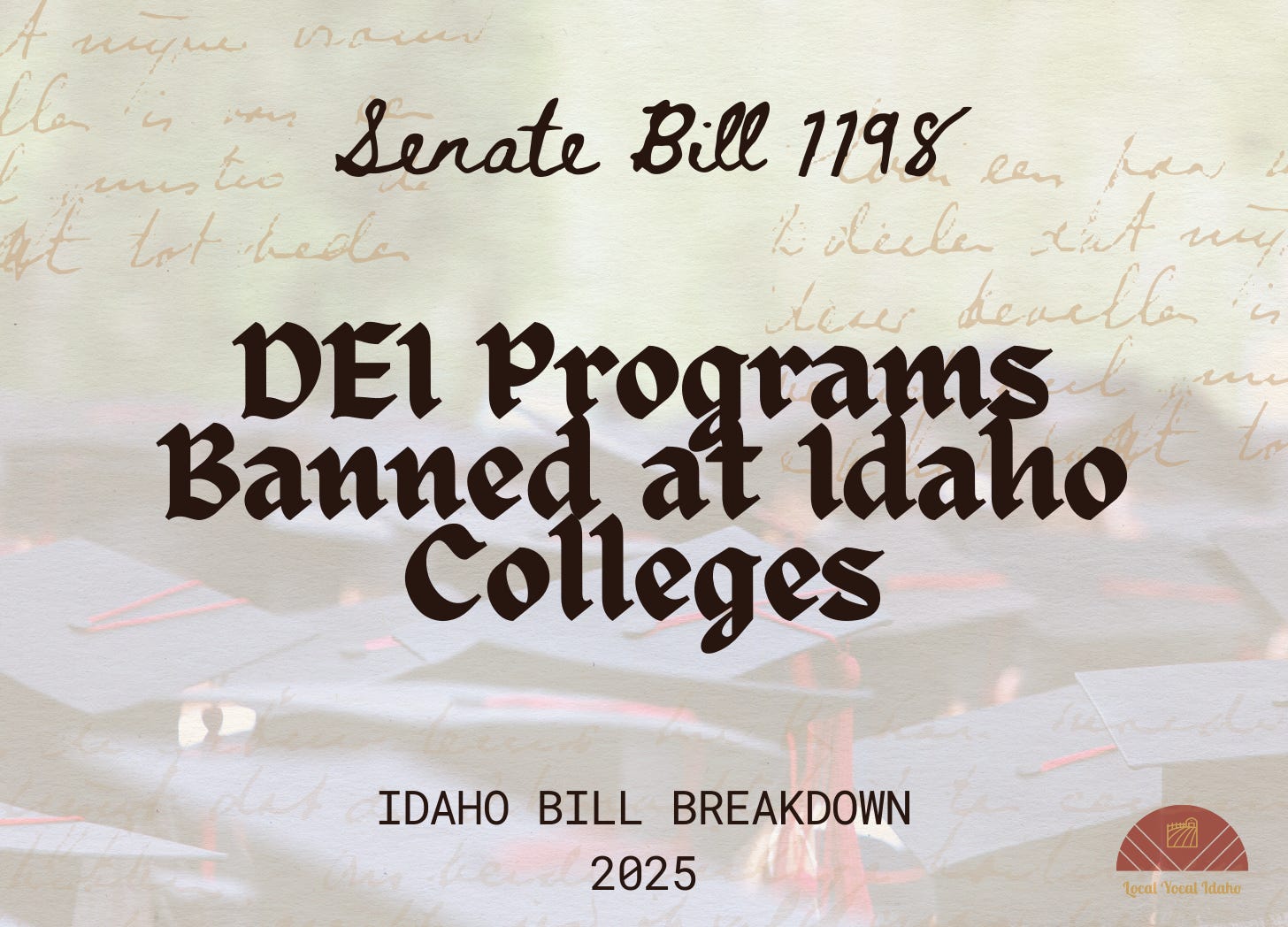This bill, signed into law on April 4, 2025, represents a shift in how Idaho's colleges and universities will operate starting July 1, 2025. The legislation prohibits Diversity, Equity, and Inclusion (DEI) programs, offices, and required trainings at state-funded higher education institutions. Supporters view it as protecting academic freedom and preventing ideological indoctrination, while critics argue it may restrict inclusive efforts that benefit marginalized students.
The Bill's Purpose
Senate Bill 1198 aims to eliminate what lawmakers describe as "compulsory ideological training" in Idaho's colleges and universities. The bill is concerned that diversity, equity, and inclusion practices have moved to promoting specific viewpoints based on "critical theory" concepts. This legislation seeks to prevent colleges from requiring students or faculty to participate in DEI programs while maintaining protections against actual discrimination.
The bill's authors expressed their intent to uphold the founding principles that "all men are created equal and endowed with inalienable rights" including "freedom of inquiry," which they believe certain DEI practices undermine. This perspective reflects the principle found in Galatians 3:28 that "There is neither Jew nor Greek, slave nor free, male nor female, for you are all one in Christ Jesus," suggesting that unity rather than division should be emphasized.
The Core Provisions
The bill makes several significant changes to Idaho's higher education system:
Prohibits DEI offices and officers
Universities and colleges cannot establish, maintain, or staff offices focused on diversity, equity, and inclusion programming. Money previously used for these purposes can be redirected to merit scholarships for in-state students.
Bans mandatory diversity training
Schools cannot require, organize, or sponsor diversity training programs that promote concepts defined as DEI in the bill.
Eliminates bias reporting systems
Institutions cannot maintain systems that allow people to report speech that might be deemed offensive but is protected by state or federal law.
Prevents required DEI courses
Students cannot be forced to take courses based on DEI principles unless they are specifically majoring in areas like ethnic or gender studies.
Prohibits discrimination in admissions and hiring
Schools cannot give preferential treatment based on race, sex, color, ethnicity, or national origin in student admissions or employee hiring.
Creates enforcement mechanisms
Requires annual reporting to the Attorney General, allows the AG to investigate violations, and creates a private right for students and staff to seek relief in court if provisions are violated.
Specifically protects American Indian programs
The bill explicitly states that colleges can still support federally recognized American Indian tribes through student centers, cultural events, and scholarships.
Current Status and Sponsors
Sponsors: Senator Ben Toews and Representative Judy Boyle were the primary sponsors of this legislation.
Committee: The bill originated in the Senate State Affairs Committee.
Current Status: Signed into law by the Governor on April 4, 2025, and will take effect on July 1, 2025. The bill moved quickly through the legislative process, being introduced in late March and signed into law within ten days.




